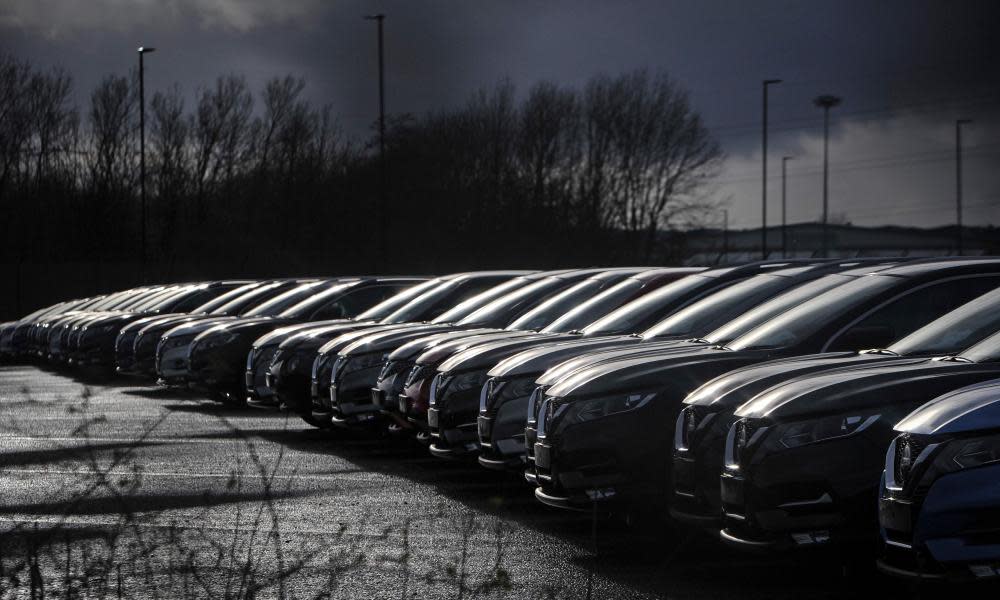Single market holds key to unlocking Brexit impasse

Nissan says its car plant in Sunderland will be at risk if it has to pay tariffs on vehicles exported from the UK to the EU. The governor of the Bank of England, Andrew Bailey, has told banks they need to prepare for the possibility that there will be no deal. It is something of an understatement to say that the talks between London and Brussels are not going well.
Whether things are as bad as they look remains to be seen. Threadneedle Street has repeatedly told banks they should prepare for all outcomes, including no deal. It would be a bit rum – and a much bigger story – if Bailey’s message was “don’t worry, everything’s going to be all right”.
Trade talks tend to have their own rhythm. The two sides start by taking up positions that are miles apart and in the initial stages of talks insist their demands are non-negotiable. Insults fly about, the talks break down acrimoniously, both sides take it in turns to walk away from the table. Eventually, as the deadline approaches, the mood becomes more constructive. Red lines are crossed; compromises are made; a deal is struck.
Will that time-honoured pattern be followed this time? The bad news is that time is running out yet the UK and the EU sides are still dug in to entrenched positions. Both accuse the other of seeking to cherry-pick. Trade deals tend to take years not months to negotiate, yet Covid-19 has meant governments across Europe have had other things on their mind. The mood music is not good.
Conversely, the economic devastation caused by the pandemic ought to be motivation enough for a deal. Nissan does not want a 10% tariff slapped on its exports, but the same applies to Germany’s automotive sector, which is deeply pessimistic about the future according to the latest survey from the Ifo thinktank.
The crunch will come later this month when Boris Johnson meets Ursula von der Leyen, the president of the European commission. One possible way out of the impasse, suggested by Kallum Pickering of Commerzbank, would be for the UK to remain in the single market for goods for an extended period so that an “ambitious” free-trade agreement can be negotiated, while securing an orderly exit for other sector such as services and finance. Pickering says both sides could probably sell that as a win. Well, maybe. Both sides will need to make concessions first, though.
Darling’s view may yet come back into vogue
The three former chancellors who gave evidence to the Treasury committee all had a view about whether the current crisis would be better or worse than the one that almost did for the banks in 2008. Worse, said Alistair Darling, who was actually in charge at the time. Better, said his successor George Osborne, taking hope from the bounce back from previous pandemics. Too early to say, said Philip Hammond, who was at the Treasury this time last year.
There is no doubt which of the three wise men is currently most in sync with the mood of the world’s equity markets. Share prices have hit their highest levels in three months as investors increasingly take the view that the impact of Covid-19 will be severe but relatively short lived.
No piece of bad news seems to shake this optimism. In the past few days, the cold war between Washington and Beijing has intensified, the number of American citizens filing jobless claims has surpassed 40 million, and there have widespread protests across the US over the horrific death of George Floyd, yet stock markets have continued to rise.
Bad economic news has continued to roll in, but markets have taken comfort from the fact that mostly it has been less appalling than expected. Sentiment can change quickly, however, and while Darling’s view is not fashionable it may come back into vogue. As he pointed out to MPs, he took a lot of stick for pointing out in 2008 that the crisis brewing then was potentially the worst since the Great Depression. But he was right.
Death knell for Davos?
Is this the beginning of the end for Davos? The World Economic Forum, the body that holds its annual talkfest in the Swiss Alps says next year’s event will be part in-person and part virtual. Doubtless the billionaires will still be out in force to discuss the WEF’s theme, despite the risk that they might catch something nasty. But here’s a prediction: there will be fewer private jets parked at Zurich airport come January.

 Yahoo News
Yahoo News 
